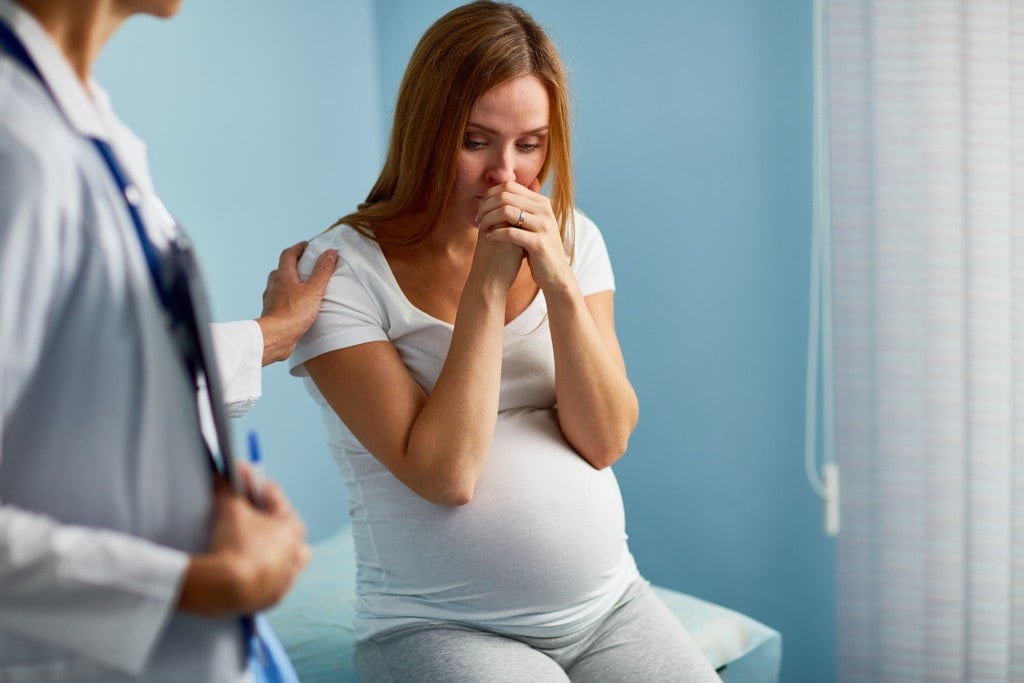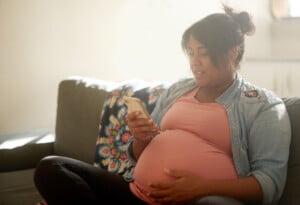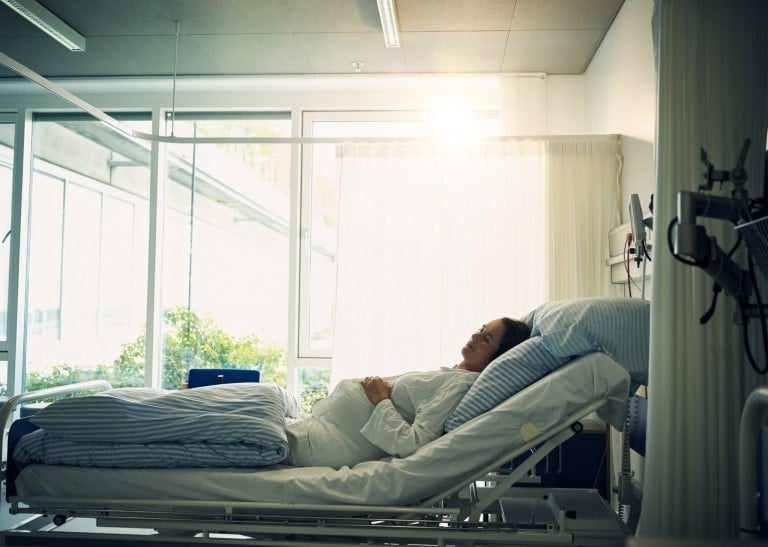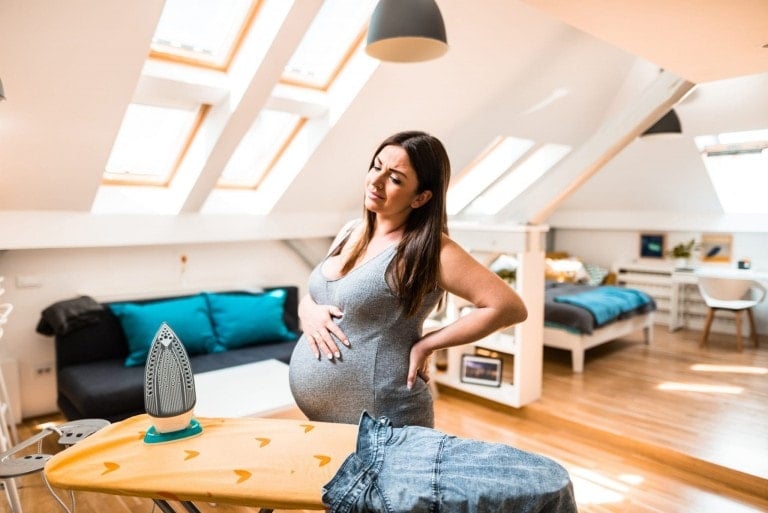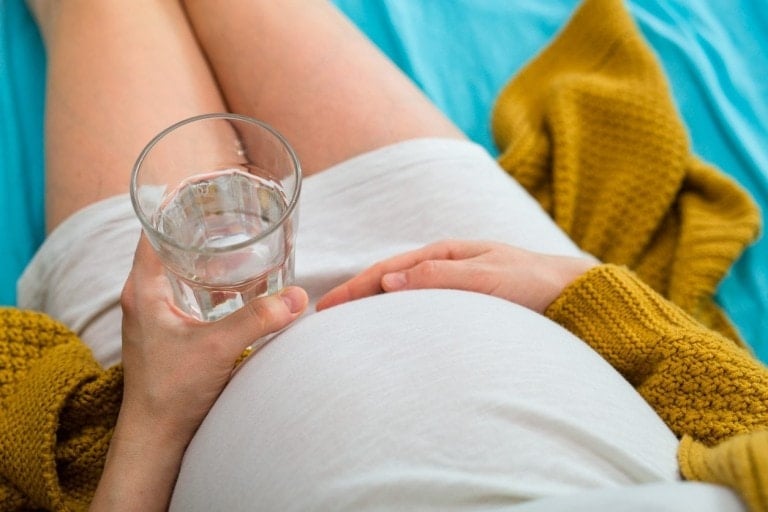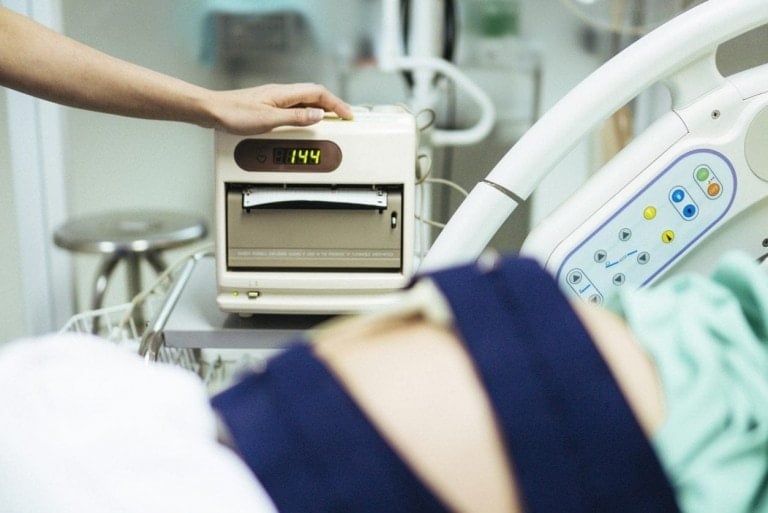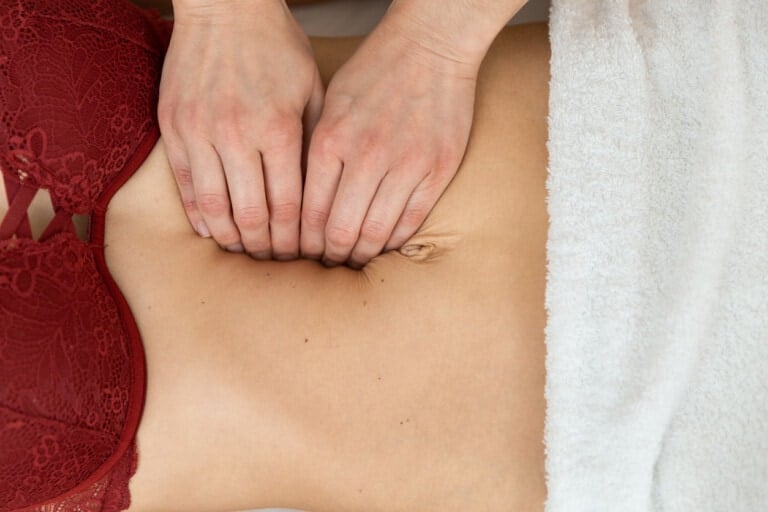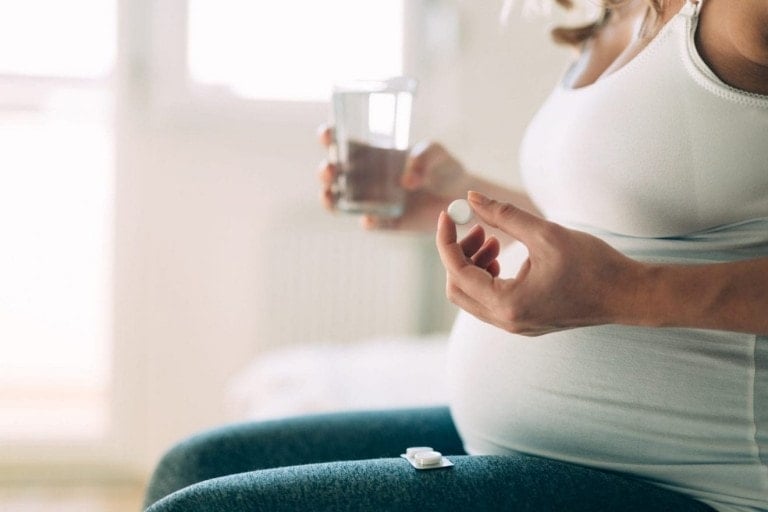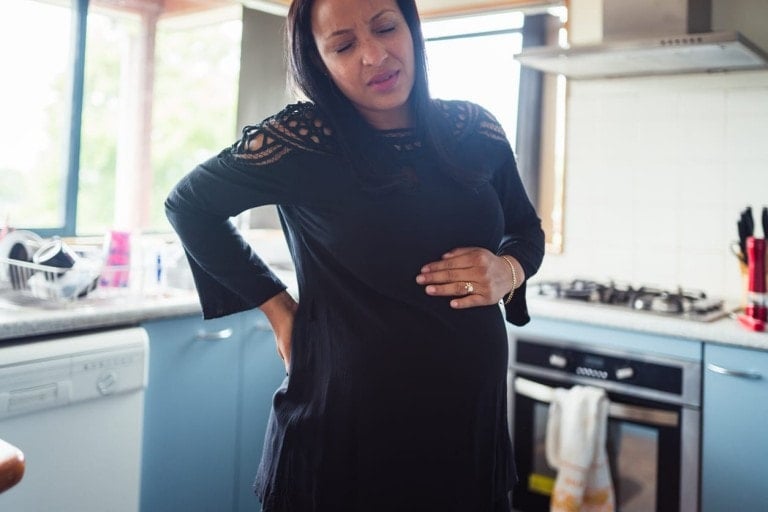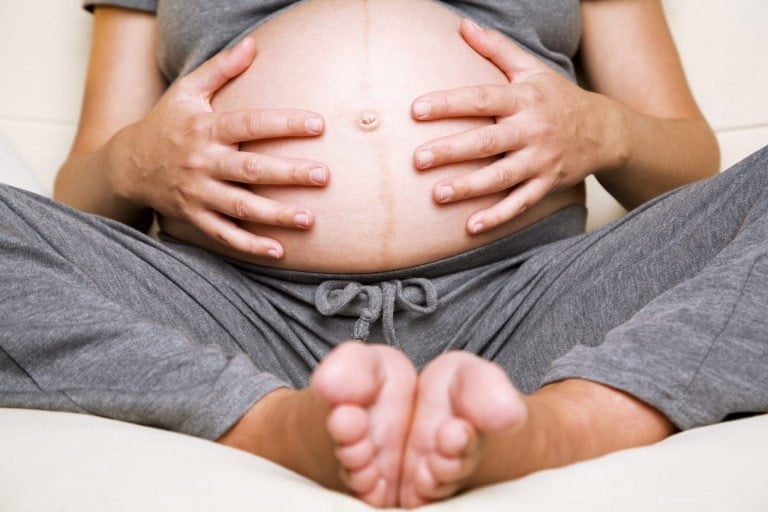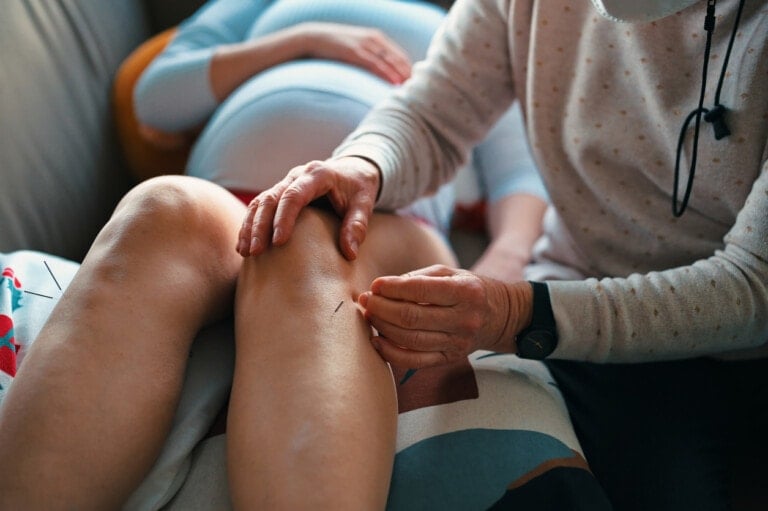So you tested positive for GBS during your pregnancy . . . now what? If you test positive for Group B Streptococcus, also called Group B Strep or GBS, during pregnancy, you have done great by merely getting the test. This can pave the way for solutions that help you and your baby stay healthy and safe.
Indeed, it can feel unsettling to find out your Group B Strep test returned positive. But having GBS in your body generally will not cause you harm. Many women who are GBS positive do not even know they have it.7 They are simply carriers of the bacteria and do not have an infection or symptoms. Furthermore, there are natural ways to prevent or lower GBS through probiotics and other dietary foods.4
However, GBS poses the most significant risk to your baby when they go through the birth canal where GBS may reside. In most cases, your doctor has already tested you and knows you have GBS, so your healthcare professional will give you antibiotics intravenously about every four hours before you deliver.1 If you’ve tested positive, your next step is to talk with your midwife or doctor about options for you and your baby. Read on to learn about GBS, treatment options, and how to prevent it.
What Is GBS in Pregnancy?
Group B Strep is bacteria typically found in the intestine, genital area, and rectum in about 25% of pregnant mothers.1 Most pregnant women with the bacteria have no symptoms, but GBS can spread to babies before or during birth, leading to potentially life-threatening situations.2
A doctor or midwife usually performs the GBS test between the 36th and 38th weeks of pregnancy.6 During pregnancy, a woman can pass GBS to her baby. A baby can get it from the mother’s genital tract during birthing.3 It’s essential to get tested during pregnancy for prevention and to develop a birthing plan to protect the baby.
For pregnant moms, GBS can cause infections in the bloodstream, placenta, urinary tract, amniotic fluid, and uterus.7 For the infant, consequences can include potentially life-threatening infections such as meningitis, pneumonia, and sepsis.6
Which Babies Are Most at Risk?
Newborns are more likely to get Group B Strep infection if the mother has:1
- A fever
- Preterm labor
- Early breaking of water (rupture of membranes)
- A long time between rupture of membranes and birth
- Internal fetal monitoring during labor
- A past pregnancy with a baby who had Group B Strep
- African-American or Hispanic ethnicity
- Group B Strep in urine (bacteriuria) during pregnancy
How Does a Mother Get a GBS Test?
Mothers should do testing for subsequent pregnancies, even if the mother tests negative during her first pregnancy. The test (called a culture) is usually administered between weeks 36 and 38.6 It’s simple, inexpensive, and painless. A medical professional uses a large cotton swab to collect samples from the vagina and rectum. Those samples go to a lab for testing, and your healthcare provider notifies you if you test positive for GBS.7
What Are the Symptoms of GBS Infection in a Baby?
Newborn babies with Group B Strep usually have signs in the first 24 hours after birth. These signs may include:2
- Fussiness, lethargy, and breathing problems (signs of sepsis)
- Rapid breathing and grunting noises (signs of pneumonia)
- Periods of not breathing (a sign of meningitis)
- A change in blood pressure
- Convulsions (seizure)
Babies who get Group B Strep a week or so after birth may have signs such as:3
- Decreased movement of limbs
- Pain with movement of limbs
- Breathing problems
- A fever
- A red area on the face or another part of the body
What Are the Symptoms of GBS Infection in a Mother?
While symptoms do not always present themselves in pregnant women who test positive for Group B Strep, sometimes symptoms do appear. Symptoms in mothers look like this:3
- Fever
- Increased heart rate
- Frequent urge to pee or urinate
- Pain with urination
- Nausea and vomiting
- Pain in the mother’s side or back
- Sore uterus or belly
How Is Group B Strep Treated in a Baby?
Newborn babies with Group B Strep infection may need care and treatment in the newborn intensive care unit (NICU), often IV antibiotics. A baby with meningitis, pneumonia, or severe infection may require additional treatments.3
How Is Group B Strep Treated in a Mother?
It’s crucial to receive antibiotics in labor if you are GBS positive. 1-2% of newborns will develop early GBS infection if antibiotics are not given to a mother who is positive for GBS. Even though only a few babies get sick, GBS infection is still life-threatening.8
Suppose you have a positive GBS test but no symptoms or complications. In that case, the treatment is starting intravenous (IV) antibiotics at the beginning of labor or the rupture of membranes (when your water breaks).2 Antibiotics are a type of medication that kills bacteria.7 Penicillin or ampicillin are the IV medications doctors typically use to treat group B streptococcus during labor and delivery.6
If you are allergic to penicillin, your doctor will give you a different antibiotic instead.6 Make sure to tell the doctor or midwife delivering your baby that you are allergic. Likely, it will be in your health chart, but it’s good to remind your provider at the time of birth.
Can You Prevent GBS in Pregnancy?
Let’s look at some of the ways you can help prevent GBS:
Should I Start Taking Probiotics?
The best way to treat GBS without antibiotics is to improve the quality of good bacteria inside your body.4 Sounds funny, right? But your intestines, digestive system, and genital area naturally contain good bacteria that support a strong immune system. Sometimes, though, your body could use more healthy bacteria and may have lost some beneficial bacteria from stress or bodily inflammation. For this reason, you can help your body fight harmful bacteria (like GBS) by intaking more healthy bacteria through eating a nutritious diet and seeking probiotic food and supplements.4
What Are Probiotics?
Probiotics can lower the number of harmful bacteria in your gut that cause illness or inflammation, including Group B Strep. Probiotics are live microorganisms that help with digestion, eliminate disease-causing cells, and generate vitamins. These good bacteria blends contain various microorganisms, and the most common are bacteria that belong to groups Lactobacillus and Bifidobacterium.4 L. Rhamnosus is a good bacteria that is particularly effective in combating GBS.9
Eating more probiotics can promote healthy vaginal flora (bacteria), which may lower your chances of getting or retaining GBS and passing it on to your baby.9 These naturopathic remedies may help significantly, but consult your healthcare provider before trying a homeopathic plan.
How Do I Get More Probiotics?
The best way to increase your uptake of probiotics or “helpful bacteria” is by eating fermented foods like sauerkraut, kimchi, pickled foods, Kefir, and yogurt.4 You can find many fermented foods at your local grocery store.
Eating raw produce is also essential because raw fruits and vegetables contain fiber and helpful probiotic bacteria, which your gut benefits from.10 A study from Frontiers in Microbiology found that the average apple contains about 100 million bacteria on the inside, fleshy part.5 That’s good news for your gut!
How Else Can I Improve My Diet To Prevent GBS?
Try these additional tips to prevent GBS:
- Take a probiotic supplement before bed
- Continue your uptake of probiotics (whether through food or supplements) through pregnancy and breastfeeding
- Eat a rich and nutritiously dense diet
- Drink plenty of water (8-12 cups per day when pregnant)11
- Lower your sugar intake
- Lower your intake of foods containing white flour
- Eat lots of protein, fruits and vegetables, and healthy fats, especially omega-3 fatty acids
- Eat lots of garlic
- Increase your intake of collagens (through bone broth or supplements)
- Get a good night’s sleep
- Prioritize rest to reduce inflammation in your body













